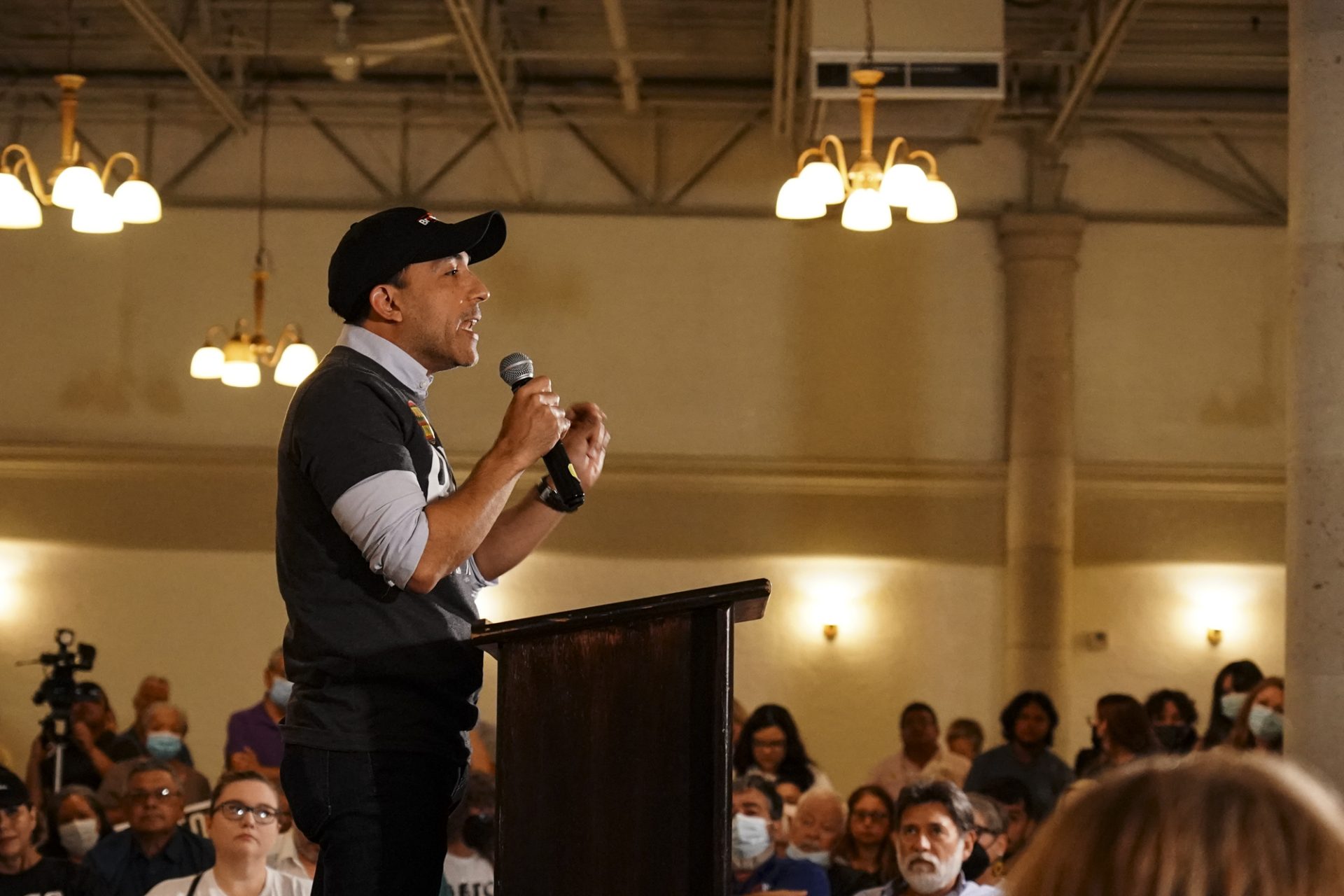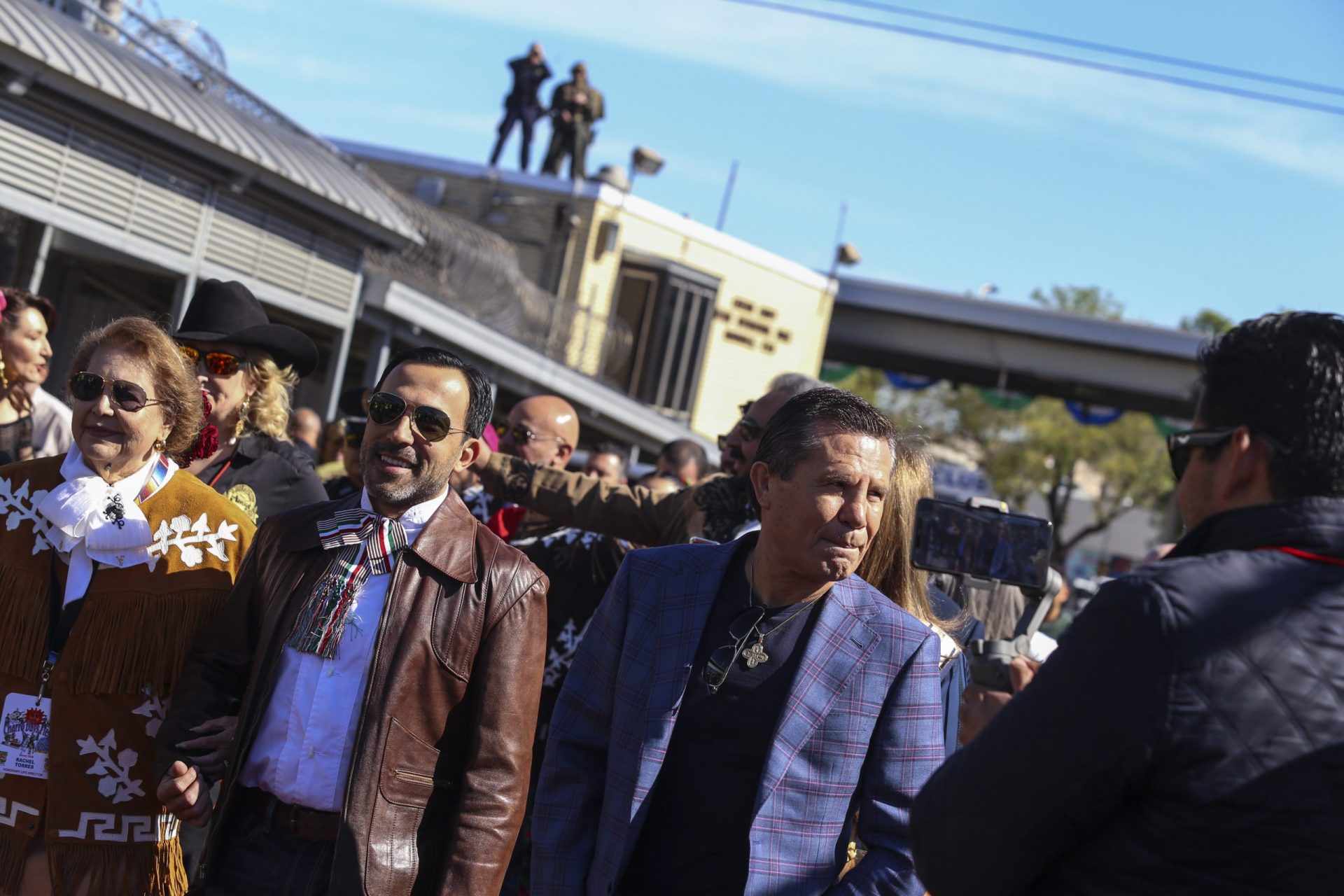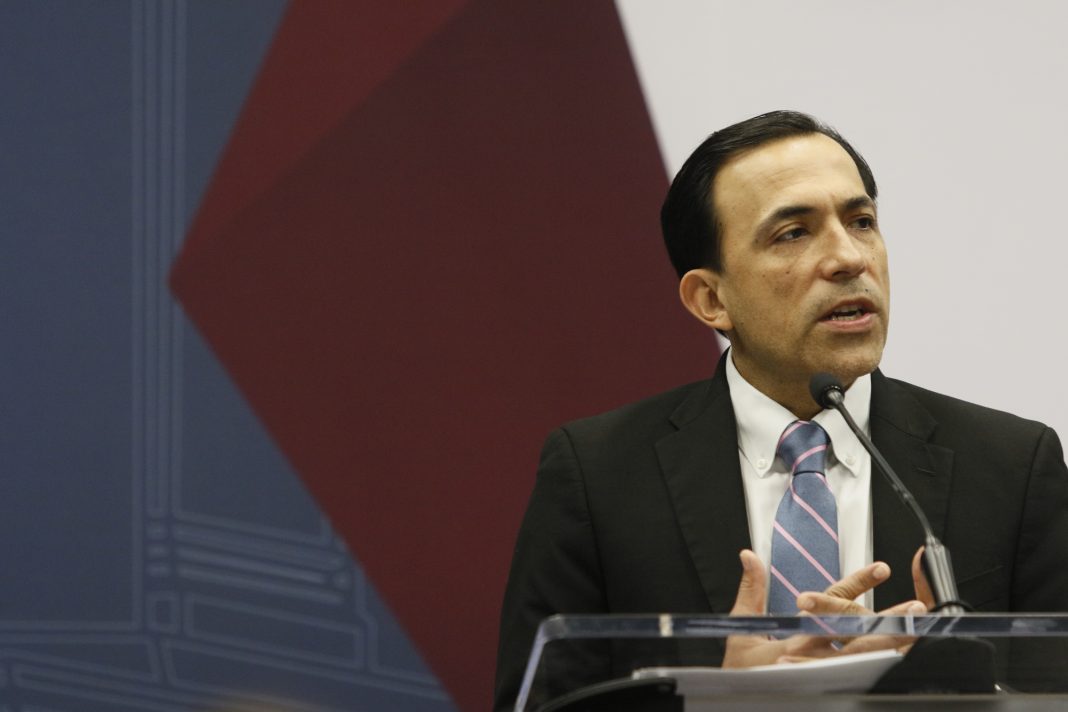Brownsville Mayor Juan “Trey” Mendez III, who announced via Facebook recently that he won’t seek a second term, spoke to the Brownsville Herald about his reasons.
Chief among them is that he’s accomplished pretty much everything that he set out to as mayor, despite the extraordinary circumstances that have accompanied much of his tenure, Mendez said.
“You’re looking at the first global pandemic in 100 years, a pretty bad freeze, some immigration concerns here at the border, and obviously some things that need to be cleaned up at our public utility, but I think we’ve managed everything pretty good,” he said.

Mendez, who also praised the makeup and work of the city commission, said eliminating Brownsville’s digital divide was a top priority, and the city’s BTX Fiber project to make broadband internet available citywide broke ground in October.
“You know the story: We were one of the least connected communities in the United States for two years in a row,” he said. “It looks like we’re going to be able to cross our name off that list.”
The broadband project should be completed over the next 18 or 24 months, with some parts of the city getting “lit up” even earlier, Mendez said.
“I’m looking forward to that,” he said. “That’s going to be a project that has generational impact. Whether people understand the full scope of it yet or not, they will. It’s going to be something that really levels the playing field for Brownsville and makes it more competitive on a national level.”
Mendez said he’s proud of helping shepherd the Gladys Porter Zoo’s first master plan in 50 years, and also cited the city’s “tremendous growth” in development since he became mayor in 2019. In that year, Brownsville saw $65 million worth of residential development and $85 million in commercial development, while this year so far the city has witnessed $211 million in residential and $128 million in commercial development, he said.
“That’s more than triple what we had when we came in, and that’s despite a pandemic and despite other economic concerns across the country,” Mendez said.
He also pointed to city infrastructure improvements during his term, with investments under the new capital improvement plan over the last two years the largest in Brownsville’s history, he said. Mendez also listed among his and the commission’s accomplishments the successful recruitment of a third hospital, DHR Brownsville, which should open in the next two months or so plus a revamped development code and digitized permitting process.
“When I arrived as mayor there was no strategic plan in place at all,” he said. “Within a few months we were able to put something in place and move that toward implementation. We’ve had that for the last three years and we’ve been seeing some major improvements from that.”
One thing Mendez said he plans to focus on during his last half-year in office is continuing to improve Brownsville’s animal shelter and inject some “vision and strategy” where the facility is concerned.

Mendez said it’s gratifying to feel he’s leave the city with a solid foundation and vision for growth and “really different mindset,” though the flip side is that serving as mayor has also taken a toll — physically, mentally and financially.
“This is full time job and it really requires dedication, hard work and really a focus to set everything else aside and work for you community,” he said. “This is a volunteer position. There’s no payment for this and it has affected my practice. … It is a big commitment, so whoever is elected should expect to work full time for our community, because that’s what we deserve and that’s what’s going to be necessary for us to continue with this momentum.”
He said he looks forward to rebuilding his law practice and intends to remain involved in the community as he was before becoming mayor. On a darker note, Mendez said he hopes whoever follows him in the office isn’t on the receiving end of the type of ad hominem attacks that he needlessly endured — something far too many public servants across the country experience, and which needs to be dialed down.
“If you disagree with a policy, if you disagree with some of the projects, that’s OK,” he said. “We can have an intellectual debate about that and I can explain to you why these things are necessary or why they’re good for our city. But if you want to attack me for something other than my policies, then that’s where I think the line should be drawn.
“I think that people assume the worst, and that’s unfortunate, because there are a lot of really good people that are working hard for their community. I’m one of them.”




